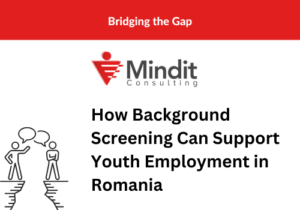If you’re in the process of applying for a job, you might have come across the term “background screening.” Understanding what it entails and its significance for you as a candidate can help you navigate the hiring process more effectively. Let’s delve into the details:
What is Background Screening?
Background screening is a standard practice in the hiring process, where employers verify the information provided by job candidates. It involves conducting checks on various aspects of your background to ensure accuracy and assess potential risks associated with your potential employment. The primary aim is to protect the company, its employees, and its clients.
What Information is Checked?
During a background screening, employers may review the following:
- Criminal History: This involves checking for any past criminal convictions. The relevance of the offense depends on the nature of the job and its responsibilities.
- Employment History: Employers verify your work experience, job titles, and employment dates to ensure consistency with your resume.
- Education Verification: Your educational qualifications, degrees, and certifications may be verified to confirm that you meet the required qualifications for the position.
- Reference Checks: Employers often reach out to the references you provided to gain insights into your work ethic, professionalism, and interpersonal skills.
- Professional License Verification: For positions that require specific licenses or certifications, employers may verify the validity of your credentials.
Why is Consent Necessary?
Before initiating a background check, employers must obtain your written consent. This is a legal requirement to ensure compliance with privacy laws and to inform you about the process.
How Long Does it Take?
The duration of a background check can vary based on factors like the depth of the investigation and the responsiveness of third-party verification services. Typically, the process may take anywhere from a few days to several weeks.
Could a Background Check Affect My Chances of Getting Hired?
The potential impact of a background check on your candidacy depends on the employer’s policies and the nature of the position. Serious issues such as a significant criminal record or dishonesty in your application could lead to disqualification.
Addressing Inaccuracies
If you discover any errors or inaccuracies in your background check report, you have the right to dispute them. Reach out to the background screening company or the employer and follow their procedures for resolving any discrepancies.
Credit History and Criminal Records
While credit history is becoming less of a determining factor in many industries, criminal records’ relevance can vary significantly depending on the job requirements and responsibilities.
Notification of Adverse Decisions
If the background check reveals disqualifying information, the employer is generally required to inform you of their decision and provide information on how to address any concerns if applicable.
Stay Informed and Cooperative
Having an understanding of the background screening process can help you be prepared and cooperative during the hiring process. Always be truthful and forthcoming with information to improve your chances of securing your desired job opportunity.
Remember, background screening is a standard part of the hiring process, and employers aim to make informed decisions to create a safe and reliable work environment. By being aware of the process and its significance, you can present yourself as a trustworthy and desirable candidate to potential employers.


